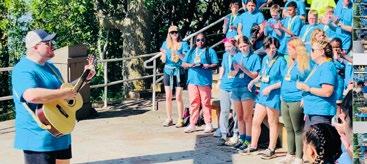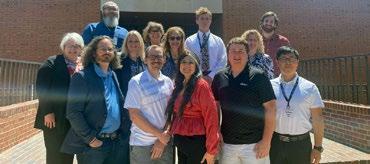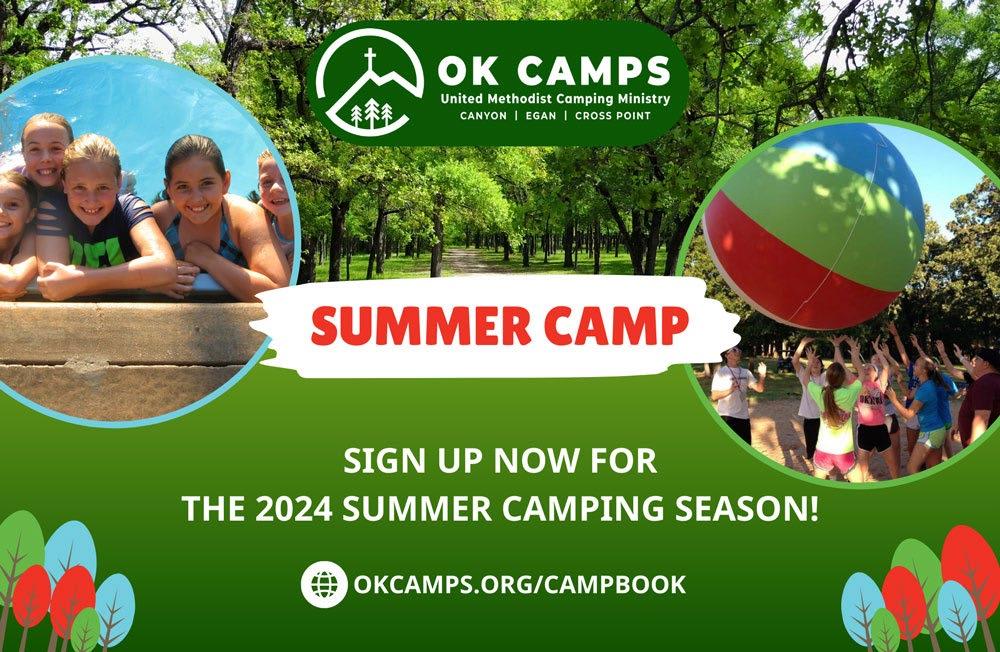










When you hear the word “Juneteenth,” many African Americans envision outdoor barbecues filled with laughter, soul music, concerts, children playing, fireworks, poetry readings and ceremonies recognizing change makers.
They discuss the significance of this celebration and the feeling of being seen and heard. It’s a moment of belonging, a recognition that this is our country. Now, we have a federal holiday that acknowledges our humanity and existence—something that hasn’t always been the case.
Despite this progress, struggles with racism, police brutality, economic inequality, healthcare affordability, voting restrictions, the quality of K-12 education, and an unjust criminal justice system persist.
Juneteenth may now be a celebration, but it also commemorates a past marked by darkness, despair, and despondency for African American people.
Juneteenth is a holiday commemorating the emancipation of enslaved African Americans in the
United States. It is celebrated annually on June 19th, marking the day in 1865 when Union General Gordon Granger arrived in Galveston, Texas and announced that all enslaved people were free, in accordance with President Abraham Lincoln’s Emancipation Proclamation. Although the proclamation had been issued on January 1, 1863, it took over two years for the news to reach Texas and for the enforcement of the proclamation to take effect.

Juneteenth, a blend of “June” and “nineteenth,” symbolizes the end of slavery and is a day for celebrating African American culture, heritage, and progress. It became a federal holiday in the United States on June 17, 2021.
The importance of Juneteenth as
a federal holiday can be understood through its historical significance, cultural recognition, social justice impact, role in unity and healing and educational value:
Historical Significance: Juneteenth represents a pivotal moment in American history and the struggle for freedom and equality. Recognizing this history is crucial for a comprehensive understanding of the nation’s past.
Cultural Recognition: It celebrates African American culture, resilience and contributions to society, promoting cultural awareness and appreciation.
Social Justice: Juneteenth highlights the ongoing fight for civil rights and equality, inspiring continued efforts towards social justice and addressing racial disparities.
Unity and Healing: The holiday fosters a sense of unity and healing by acknowledging past hardships and celebrating progress.
Education: Observing Juneteenth provides an opportunity to educate people about a significant, often
overlooked part of American history, fostering a more informed and empathetic society.
Celebrating Juneteenth contributes to a more inclusive narrative of American history and promotes the values of freedom, equality and justice.
Churches can enhance their community’s understanding of Juneteenth through educational sessions, joint worship services, community events, book studies or guest lectures. Recognizing Juneteenth during services with prayers, sermons, reflections, and readings can highlight the importance of freedom, justice, and equality, showing solidarity and respect for the day’s significance. Juneteenth is not just a one-
time event but part of an ongoing commitment to racial justice. It is crucial to develop long-term plans and actions for continued learning, growth and advocacy for racial equity within and beyond the church community. We must keep working to bridge the gap and create a Church where everyone is included and every voice is heard—a place where all of God’s children matter. As Dr. Martin Luther King Jr. said, “Our lives begin to end the day we become silent about things that matter.”

Respectfully attend or volunteer at events.
Ask your local sponsor of Juneteenth events and your Black friends, colleagues, and church friends how you can help. Volunteer for the clean-up/set-up crews. Help staff information booths, if appropriate.
If you attend as a guest, be respectful. Do not wear African daishikis or kente cloth without first asking permission. While you may intend it as appreciation, others may view it as cultural appropriation.
Preach and teach about the current face of racism.
Many white people have been socialized to see racism as a challenge of the distant past. However, full voting rights and equal education for African Americans were not granted until the 1950s and 1960s. In The United Methodist Church, some annual conferences had legalized racism until the 1970s.
The U.S. Church is still largely segregated in worship and work. White Christians must grapple with their role in perpetrating racism and work to heed God’s call to “let justice roll down.” Use sermons, worship, and church media to educate and inspire your congregation.
Support Black churches, charities, and businesses.

Make a regular tithe or donation to a local African American church, a United Methodist campus ministry at a historically Black college or university, or community ministry or scholarshipfund supporting Black, Indigenous, and People of Color. Make deliberate efforts to support Black-owned businesses and services.
Listen and read.
Juneteenth offers an opportunity for white friends and family to learn more about the realities African-Americans face and the contributions they make to the church, community, and world. Listen to this podcast with Jasmine Bradshaw, which further explains Juneteenth history and ways your family can celebrate the holiday.
Confront the history in your community.
Learn about the history of enslaved Black people in your local area and state. Explore the history of your

church and its leaders and develop ways that your congregations can make tangible amends and reparations.
Church school and small groups:
Discuss Juneteenth’s history and current implications for African Americans. Invite a local Black history teacher or museum curator to speak, or watch the Ava DuVernay’s Netflix documentary, 13th: From Slave to Criminal with one Amendment, which explores the U.S. journey from the enslavement of Black people to the school-to-prison pipeline.


Do you know someone who is a dynamite administrator? Musician? Church secretary?
Check out the conference employment page.
We’re hiring TWO District Administrators. Churches across the conference are hiring for multiple positions.
We are looking for a few great United Methodists to fill these positions!


Help lead church ministries and share God’s love with neighbors through words and actions.
Prayer and worship
Visit the hospitalized or homebound
Committee participation
Lead small groups
Teach Sunday school
Help with service ministries like food pantries
Advocate for the poor ormarginalized
Attend mission trips
And much more
Serves the local church or charge to inspire the laity to deeper commitment to Christ.
Teaching Preaching
Consecrated and commissioned to a lifelong full-time vocational ministry of love, justice, and service in a church-related or helping profession.
Provides congregational leadership as part of a ministry team under the supervision of a clergyperson.
Specially trained and approved for a ministry specialty
Serves in Christ’s name around the world in a range of activities and professions.
Word, Service, Compassion, and Justice. Interrelates worship with service to God in the world.
Word, Service, Sacrament, and Order Orders the church for spiritual growth and community outreach.
Licensed for pastoral ministry or chaplaincy Performs the usual duties of a pastor only within the appointment.
Organization
Other ministries Community ministry
Health & wellness
Education Social services
Preaching
Providing care
Christian education
Children’s ministry
Ministry with people with disabilities
Pastors
Educators
Congregational and leadership developers
Regional coordinators for United Methodist Committee on Relief
Social services and advocacy
Age-level spiritual development
Chaplaincy
Church-related or ecumenical agencies
Parish pastor
Chaplaincy
Church-related or ecumenical agencies
Social services and advocacy
Preaching and teaching
Worship leadership
Presiding over the sacraments where appointed
Other ministries
Assisting in program leadership
Serving as a witness to the community
Music
Spiritual formation
Other ministries
Agriculturalists
Health coordinators
Doctors
Other ministries
Worship leadership Educator Denomination-wide service
Other ministries
District superintendent
Bishop
Denomination-wide service
Pastoral care


Grace UMC hosted a Volunteers in Ministry team of UMCOR ERTs from Indiana last week. The team was down in response to an OKUMC request for volunteer assistance for recovery from the May 26 tornado that blew through Claremore. The team stayed for five days and worked during the day at various sites around Claremore. At night they joined Grace UMC for fellowship and classes. There were quite a few stories the team brought back each day as they talked about the homeowners like they were old friends. UMCOR ERTs are trained to be a caring presence in the aftermath of a disaster and aside from cutting, chopping and cleaning, are also there to listen. The team was cutting down a tree that had been part of the family for years when the homeowner started reminiscing about the memories around the tree. One such memory was when the daughter got a hold of some spray paint and painted a smiley face on the trunk. So the team decided to spend extra time to find the smiley face - which was no small task since the tree was huge and mixed in with other trees, and the paint had faded - and leave it for the homeowner as a garden decoration. Based on the beam of light shining onto the saved memory, God was pleased. No one takes time to listen to survivors like United Methodists do. That is what we do!



From a huge pile of logs, one family’s memory was saved after damage from a tornado that hit Claremore. Submitted photos.

Several United Methodists clergy were part of CJAMM’s annual New Day Camp, the summer camp for children, ages eight to 14, with incarcerated parents. Held June 3-7 at Cross Point Camp, this year’s camp had 60 children and 53 volunteers. TOP LEFT: Bo Ireland, worship leader, OKC The Lazarus Community; Alanna Ireland, worship leader, Saint Paul School of Theology; and Adam Shahan, music leader, Wesley UMC OKC. TOP RIGHT: Pam Pawley Cottrill, bingo leader, Inola UMC with Keith Dobbs CJAMM Executive Director.
BOTTOM: Rev. Adam Shahan plays guitar and jams out with campers. Submitted photos.




 Rev. Emily Robnett does double duty as Mom and clergy during worship.
Photo by Susan Chapman.
Rev. Emily Robnett does double duty as Mom and clergy during worship.
Photo by Susan Chapman.
The UMC Course of Study (COS) School is an education program designed for Licensed Local Pastors, those who are certified for ordained ministry, or those who are under appointment in the United Methodist Church.
The program (https://www.gbhem. org/clergy/licensing-course-of-study/) was developed by the General Board of Higher Education and Ministry (GBHEM) and is administered by approved seminaries such as Saint Paul School of Theology. This yearround experience teaches foundational
classes that expose students to both theory and application.
Saint Paul School of Theology offers all 20 Course of Study courses multiple times in a year in a flexible format to help pastors complete educational requirements on their terms.
Summer registration for Course of Study is open with an extended deadline and several classes still have availability. Note that the academic year 2024/25 is all online—no travel!! Students may take more than one class each semester, from different sessions/

days. Visit spst.edu/cos to get more information, register, or see the 2024 summer schedule. Contact Jennifer Smith at jennifer.smith@spst.edu if you have any questions or issues logging in.

Life at Epworth Villa is all about freedom. Freedom from home maintenance and chores. Freedom from having to drive all over town. Freedom from worrying about future needs. And when you’re free to live your best life, it’s amazing the joy that each day brings. Experience the freedom you deserve and check out our spacious cottages and beautiful apartments at EpworthVilla.org.
Plan to attend the Juneteenth celebrtion 12:30 to 1:30 p.m., June 23, at Quayle UMC in Oklahoma City.
Listen to the podcast Cultivating Empathy in Polarized Times with John Pavlovitz from Rethink Church:
Curious about maintaining compassion and engaging in meaningful conversations in your daily life? On Compass 133, join Ryan Dunn as he speaks with John Pavlovitz about finding common ground and exploring spirituality amidst life’s challenges. Discover how to navigate differences with empathy, find solace in nature, and embrace your faith journey authentically.
John shares his personal journey from questioning his Christian identity to embracing a compassionate approach that transcends religious and ideological boundaries. We’ll explore the need for human connection beyond political or religious labels and John’s latest endeavors including his work on grief, his online community Empathetic People Network, and his new book “Worth Fighting For.”
Share your event or job opportunity in the Contact For consideration, email your listing to editor@okumc.org.